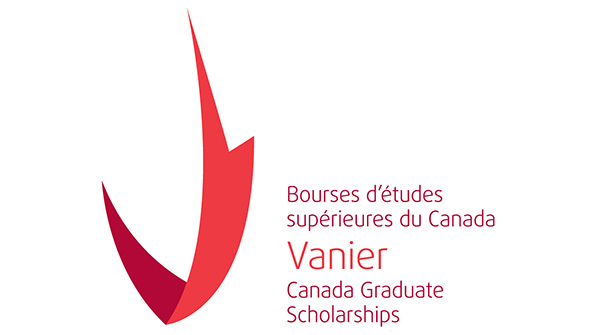
What does receiving a Vanier Scholarship mean to you?
Receiving a Vanier Scholarship is an incredible honour. Obtaining this scholarship validates my commitment to my research field and strengthens my resolve to contribute valuable insights to the scientific community. Being a Vanier Scholar also opens up a network of exceptionally talented individuals from various fields to foster innovation and inspire interdisciplinary solutions.
Importantly, the scholarship also brings a sense of responsibility of mentoring the next generation of researchers in a diverse and inclusive environment. Being a Vanier Scholar provides the opportunity to make a meaningful difference in my field and society. It’s an opportunity I’m excited to embrace.
Tell us about your research
Coronavirus disease 2019 (COVID-19) ignited a worldwide pandemic with up to 400 million confirmed cases and millions of deaths. Creating vaccines for emerging, highly contagious respiratory viruses in their early stages is crucial to curbing infectivity and preventing future pandemics. Currently, laboratory methods for modelling respiratory viruses are done on animal models or human lung cancer cells. Animals are complex living creatures capable of emulating disease progression but have different immune systems and lung cell properties compared to humans. Human lung cancer cells are easy to handle and can grow to high numbers for large sample testing, but they cannot reliably predict how a healthy individual will respond to respiratory disease. Moving away from animals and cancer cells, we propose to develop miniature human airways capable of breathing for coronavirus modelling. The airways will be made from ethnically diverse male and female healthy cells with varying donor age, so results have applicability to the greater population.
Modelling the airway is important as the coronavirus responsible for the pandemic primarily targets the airways in humans to initiate infection. Female or male lung cells are added into an engineered tube structure that mimics the airway shape in humans. As the cells grow over the tube, they will form miniature human airways. A device is fabricated that pumps air into, and out of the airways mimicking breathing, just like in human lungs. The breathing airways are an advanced organ model that we can use to test coronavirus strains and uncover biological differences to infection. We will measure the extent to which airways become injured when introduced to different coronavirus strains and compare the female and male results. The project has implications in accelerating vaccine development for future coronavirus variants and can change how respiratory viruses are modelled within Canada.
What inspired you to pursue a postgraduate degree?
My inspiration to pursue a grad degree, particularly focusing on organ-on-a-chip research, is rooted in my fascination with how biology and engineering can intersect to transform healthcare. During my undergraduate studies at McMaster University in chemical engineering and bioengineering, I was captivated by the potential of applying engineering principles to solve complex biological problems. The concept of organ-on-a-chip technology was first introduced to me by my mentor Dr. Boyang Zhang.
The potential to mimic human organ systems at a small scale for the purpose of studying disease progression and drug testing, while improving ethical standards, seemed like the research I could dedicate my career to. It was this inspiration that led me to make the decision to delve deeper into this area through postgraduate study. I’m driven by the desire to contribute to healthcare improvement, and I view my pursuit of a PhD as a vital step on this path.
Why did you choose to study at McMaster?
Choosing McMaster was driven by several factors, one of the foremost being the university’s stellar reputation in research. The innovative and pioneering work being conducted here aligns with my own research interests, particularly in organ-on-a-chip technology. The university enables access to state-of-the-art facilities and a network of accomplished researchers to foster high-calibre research and discovery. Moreover, as a product of McMaster’s undergraduate chemical engineering curriculum, I experienced firsthand the sense of community and inclusive culture at McMaster. I wanted to continue to my career at a university that values diversity, promotes student well-being, and offers opportunities for personal growth and leadership.
What do you love most about your graduate program?
The supportive and collaborative environment. The faculty members are not only esteemed in their fields, but are also invested in the success of the students. My peers are also a constant source of inspiration and support.
What is your favourite thing about McMaster’s campus?
My favourite thing is its integration with nature. The abundance of green spaces and the adjacent Cootes Paradise nature reserve provide a peaceful place to reflect.
When you’re not busy in the lab, how do you spend your time?
When I’m not immersed in my research, I love to engage in activities that allow me to stay active and connect with nature. One of my favourite pastimes is playing soccer. I’m currently the captain of the chemical engineering graduate student soccer team. This not only allows me to stay fit and play the sport I love, but it also provides a great opportunity to build team spirit among my graduate student peers. Another passion of mine is hiking. Hamilton and the McMaster campus are fortunate to contain a number of trails, and I try to explore them whenever I can.
Life beyond Grad School
After Grad School, what do you see as the next step in your life journey?
The next step in my life journey will involve a combination of professional and personal pursuits. Professionally, I plan to continue advancing organ-on-a-chip technology, either in academia or industry. This technology holds immense potential for revolutionizing healthcare, and I’m committed to contributing to its evolution. I’m also keen on promoting science education and diversity in STEM, as I believe these are critical for the advancement of the field.
On a personal level, I hope to strike a balance that allows for professional and personal growth. This includes spending valuable time with my family and friends in both Canada and Serbia, as well as investing time in activities that I enjoy.
Overall, the next step in my journey is about integrating my professional ambitions with my personal aspirations.

